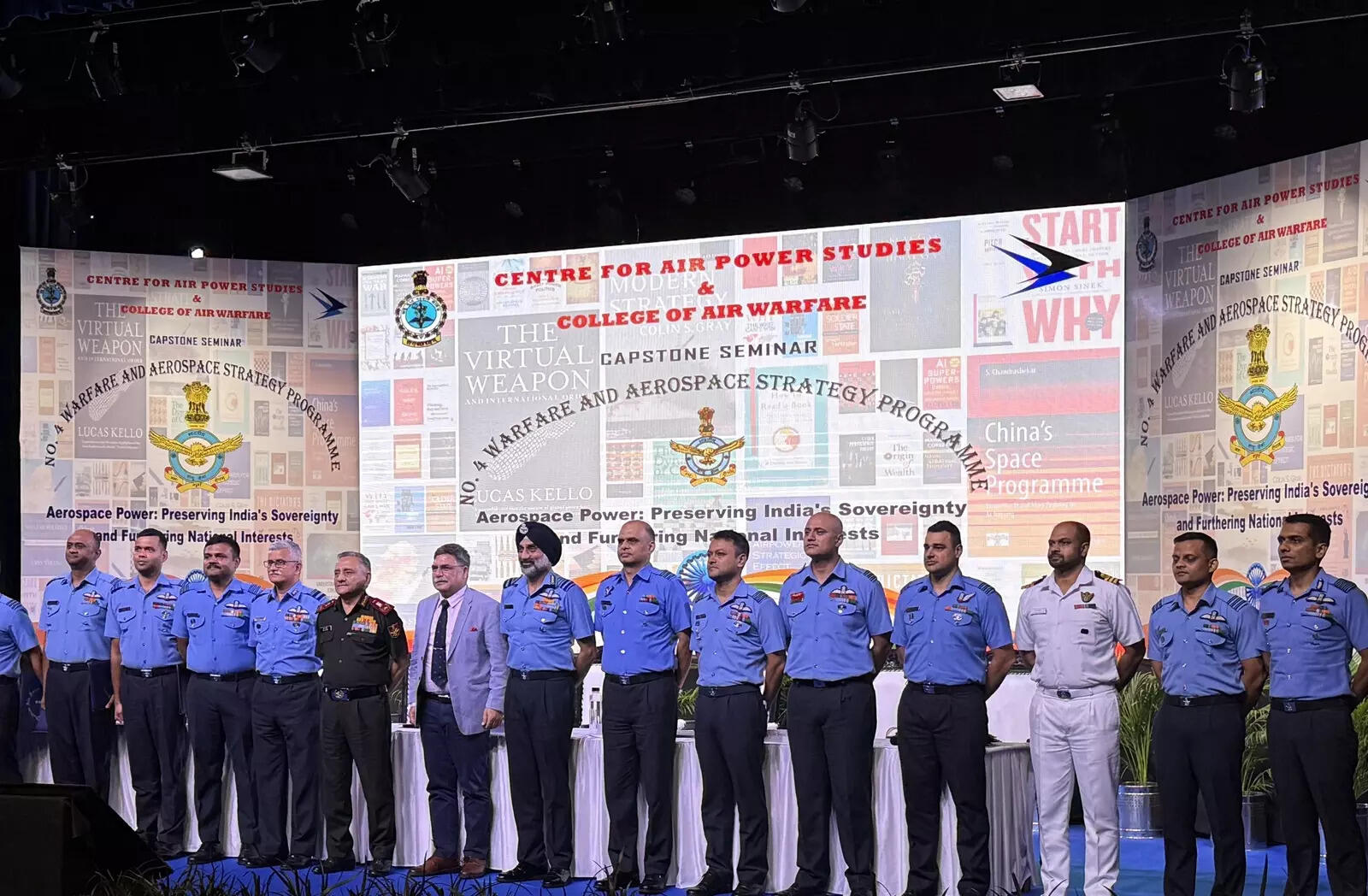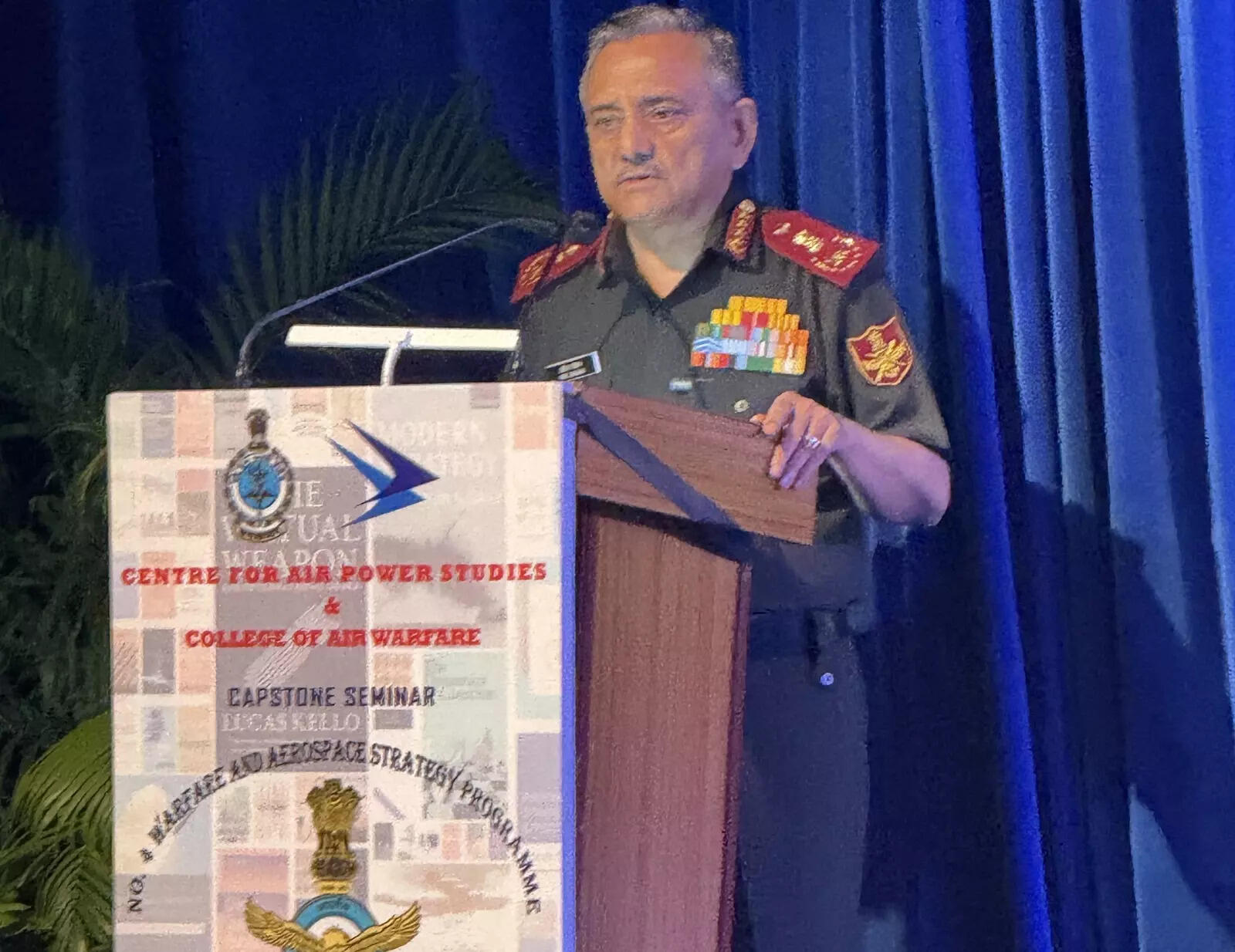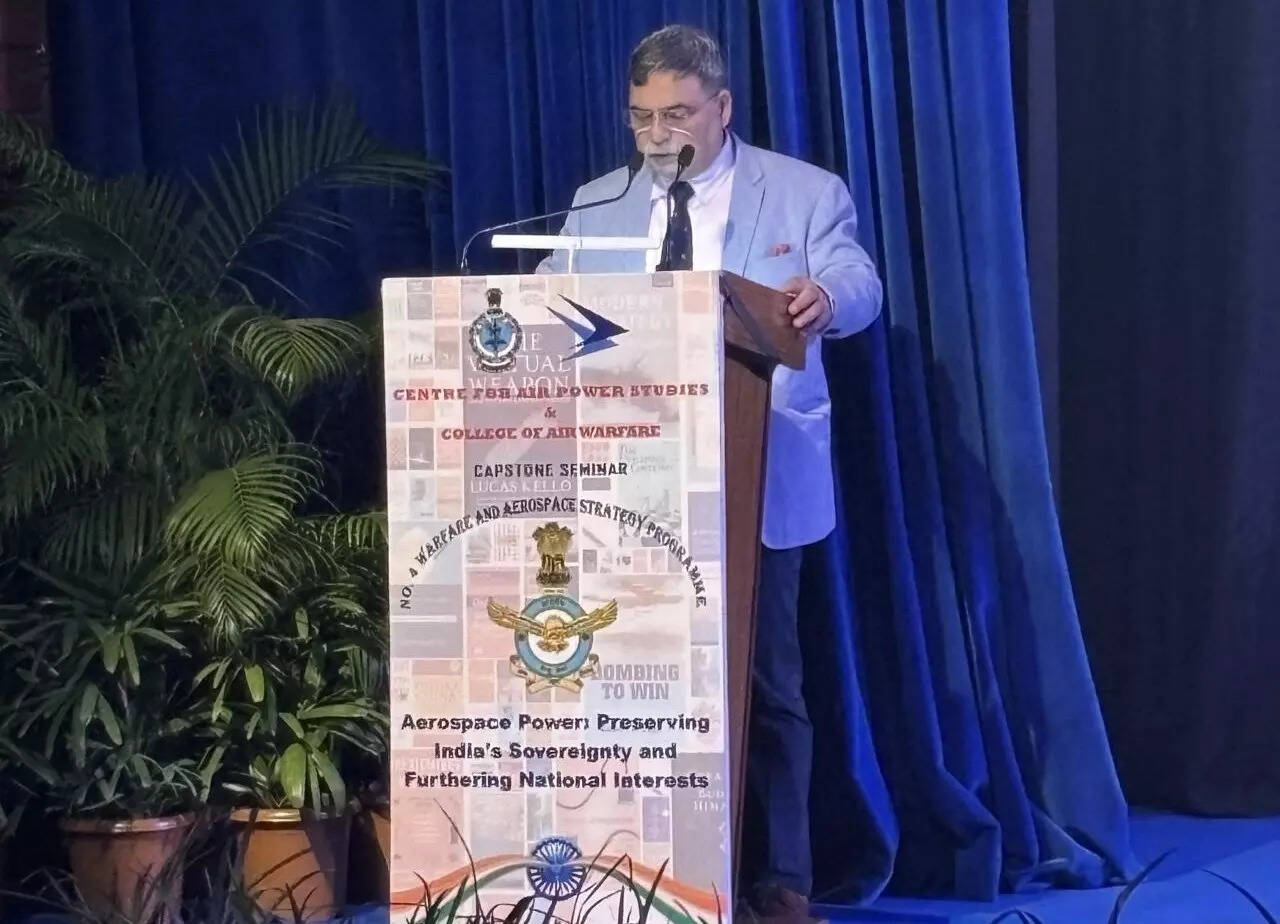
At the threshold of a changing world, where the lines between battlefield and boardroom, combat and code, enemy and algorithm are rapidly blurring, India’s defence community gathered to honour a tradition reborn—not just of warriors, but of scholar-warriors.
The Capstone Seminar of the No. 4 Warfare and Strategy Programme (WASP), held on July 25, 2025, at the Air Force Auditorium in New Delhi, was more than a ceremonial culmination of a six-month intellectual journey. It was a reaffirmation of India’s ancient wisdom and modern strategic clarity.
In his welcome address, Air Vice Marshal Anil Golani (Retd), Director General of the Centre for Air Power Studies (CAPS), set the tone for the day. Reflective yet resolute, Golani spoke of WASP as a crucible of thought where the mind is honed as finely as the sword.
The programme, he noted, immerses its participants—drawn largely from the Indian Air Force, alongside officers from the Army and Navy—in a discipline of extensive reading, analytical writing, and critical discussion. It is a space where the rigour of war meets the rigour of ideas.
“This programme,” Golani remarked, “is not merely about reading sixty books—it is about cultivating habits of mind. It is about teaching our officers how to think, not just what to think.”
Citing the dictum —“People do not decide their futures; their habits do”—he urged the graduating officers to embrace reading and reflection as a lifelong vocation. “You may win wars with strength,” he said, “but you preserve nations with wisdom.”
Yet it was the keynote address by General Anil Chauhan, Chief of Defence Staff, that stood as the intellectual and emotional axis of the seminar. General Chauhan did not merely deliver a speech; he invoked a vision—civilisational in scope, strategic in depth, and poetic in form. It was an ode to the archetype he termed the scholar-warrior—a figure that history has venerated but modernity has nearly forgotten.
“A scholar-warrior,” he began, “is a military professional who combines intellectual depth with combat proficiency. One who reads not only the terrain, but the texts. One who leads not only with courage, but with clarity.”
From the outset, General Chauhan challenged the compartmentalisation of modern military thought—the severing of scholarship from soldiering. He reminded the audience that the idea of the rishi-kshatriya is not alien to India. It is our own. “In our civilisational ethos,” he noted, “Shastra and Shastra—knowledge and the weapon—have always been seen as complementary, not contradictory.”
Drawing from the Mahabharata, he painted the timeless tableau of Krishna and Arjuna. “Krishna was the embodiment of wisdom, the master strategist, the philosopher-king. Arjuna, the peerless warrior, unmatched in skill and valour. Together, they formed the ideal command structure—wisdom guiding strength.” This, Chauhan suggested, is not myth but model. A military that forgets its philosophers becomes reckless. A philosopher who forgets war becomes irrelevant.
He then traced the continuity of this scholar-warrior ideal through Indian history—from Chanakya and Chandragupta, whose alliance of intellect and force built the Mauryan Empire, to the gurukul traditions that produced rulers steeped in dharma and statecraft. Even as the West celebrates Alexander tutored by Aristotle, India had long institutionalised this fusion of arms and ideas.
But somewhere along the arc of modern warfare, Chauhan observed, a fissure emerged. As technology advanced and bureaucracy expanded, military leadership in many parts of the world split into two distinct castes: the thinkers and the doers. Scholars penned grand strategies from ivory towers; soldiers executed operations without the benefit of reflective doctrine.
“The result,” he said, “was a generation of generals who fought yesterday’s wars, and strategists who never left their desks.”
This dichotomy, General Chauhan warned, is not only dangerous—it is obsolete. Today’s battles are fought on shifting sands: from the Himalayan passes to the algorithmic underworld of cyberspace, from narrative warfare on social media to orbital dominance in space. In such a world, the soldier cannot afford to be intellectually lazy, nor the scholar strategically naïve.
“We now stand,” he declared, “at the edge of a third revolution in warfare—one in which hybrid tactics, intelligent machines, space-based platforms, and psychological operations converge. The distinctions between tactical, operational, and strategic domains are dissolving. A commander must now act across all three, in real time, in multiple domains.”
And so, the call to arms has changed. It no longer demands just bravery or brute strength. It demands synthesis. “We need warriors who are technologists, information warriors who can shape narratives, cyber-warriors who understand statecraft, and strategic thinkers who can fight in jungles, deserts, and data centres alike.”
It was a moment of profound clarity when General Chauhan proposed that perhaps the age of the solitary genius—the Napoleon, the Patton, the one indispensable man—is over. “Victory,” he said, “is no longer the triumph of one brilliant general, but of distributed excellence. The genius must now reside not in one, but in many.”
His words, gently delivered but searing in implication, turned into a challenge—not just to those in uniform, but to the very institutions of military education. “Our training must go beyond drills and simulations. It must include Plato and Kautilya, Tzu and Thucydides, Clausewitz and Krishna. Because when a nation’s fate is at stake, the sword must be guided by a hand that has turned many pages.”
General Chauhan closed his address with an invocation from the Rig Veda—“Let noble thoughts come to us from all directions.” In doing so, he reminded the audience that strategic thought, like national security itself, must be open, plural, and civilisationally self-aware.
The seminar, attended by over a hundred officers from the Indian Air Force, as well as delegations from the Army, Navy, and friendly foreign nations, was also graced by Air Chief Marshal Amar Preet Singh, Chief of the Air Staff; General Upendra Dwivedi, Chief of the Army Staff; former Chief of the Air Staff, Air Chief Marshal Vivek Ram Chaudhari, and Lt General Dushyant Singh, Director General, CLAWS. The presence of such luminaries lent the event not only ceremonial significance but a sense of strategic continuity.
As the seminar drew to a close, what lingered in the air was not merely the memory of uniforms and speeches, but an idea—a renaissance of the warrior-scholar. In an age when the very character of war is being rewritten, India’s defence establishment is choosing not to merely adapt, but to lead—rooted in its own traditions, and resolved to cultivate not just protectors of the state, but stewards of knowledge.
The WASP programme is no longer just a course. It is an intellectual movement, a whisper of antiquity meeting the roar of the future.
(Anoop Verma is Editor-News, ETGovernment)



